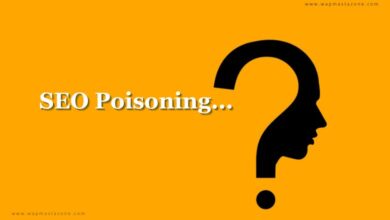
How do you know if your SEO strategy is successful? Measuring the success of an SEO strategy can be challenging. However, by tracking the right metrics and setting clear goals, you can determine whether your SEO strategy is working or not.
Increased organic traffic, improved keyword rankings, decreased bounce rate, increased time spent on page, increased domain authority, higher conversion rates, lower CPA, improved user experience, increased social engagement, improved backlink profile, returning visitors, and achieving business goals are all essential metrics to consider when measuring the success of an SEO strategy.
Suggested read: RoadMap to Becoming An SEO Expert
What is SEO Strategy?
SEO (Search Engine Optimization) strategy is a set of techniques and practices aimed at improving the visibility and ranking of a website or web page in search engine results pages (SERPs).
The ultimate goal of an SEO strategy is to increase organic traffic to a website, which is traffic that comes from search engines rather than paid advertising.
Below are 13 ways to know if an SEO strategy is successful:
1. Increased Organic Traffic
The most apparent sign of a successful SEO strategy is an increase in organic traffic. Organic traffic refers to the visitors who find your website through search engine results without any paid promotions. The goal of any SEO campaign is to improve the ranking of the website for relevant keywords to attract more organic traffic.
However, an increase in traffic alone doesn’t mean that the SEO strategy is successful. The quality of traffic also matters. You want to attract visitors who are genuinely interested in your products or services, rather than those who bounce off your website quickly.
Suggested read: What is SEO?
2. Improved Keyword Rankings
Another way to know if an SEO strategy is successful is to track the keyword rankings. The aim of SEO is to rank higher in SERPs for relevant keywords that your potential customers are searching for. So, if your website is ranking higher for targeted keywords, it’s a good indication that your SEO strategy is working.
However, keep in mind that ranking higher for every keyword may not be possible or necessary. Instead, focus on the most relevant and high-traffic keywords that are likely to bring in more business.
3. Decreased Bounce Rate
Bounce rate is the percentage of visitors who leave your website without exploring any other pages. A high bounce rate indicates that the visitors are not finding what they were looking for or that your website’s user experience is not up to par.
If your SEO strategy is successful, you should see a decrease in bounce rate over time. This means that the visitors are finding your website useful and engaging, and they are more likely to convert into customers or leads.
Suggested read: The Concept of ON Page SEO – Ultimate Guide
Suggested read: The Concept of OFF Page SEO – Ultimate Guide
4. Increased Time Spent on Page
Dwell time is the amount of time a visitor spends on your website before returning to the search results or leaving altogether. It’s a critical metric for SEO because it indicates the level of engagement and interest in your website’s content.
If your SEO strategy is successful, you should see an increase in dwell time. This means that the visitors are finding your content informative, engaging, and valuable, and they are spending more time exploring your website.
5. Domain Authority
Domain authority is a metric developed by Moz that measures the strength and authority of a website’s domain. It is based on a variety of factors, including the quality and relevance of the website’s content, the number of high-quality external links pointing to the website, and the website’s age and history.
A high domain authority indicates that a website is well-established and respected within its industry. It also suggests that the website is likely to rank well in search engine results pages (SERPs) for relevant keywords. However, it is important to note that domain authority alone does not indicate the success of an SEO strategy. Other metrics, such as organic traffic and conversion rates, must also be considered.
Suggested read: 7 Proven Steps To Grow Your Domain Authority
Suggested Tool: Domain Authority Checker
6. Higher Conversion Rates
The ultimate goal of SEO is to attract visitors who are interested in your products or services and convert them into customers or leads. Hence, measuring the conversion rate is crucial to determine the success of your SEO strategy.
If your SEO strategy is successful, you should see a higher conversion rate over time. This means that the visitors are taking the desired action, such as making a purchase or filling out a lead form.
7. Lower Cost per Acquisition (CPA)
CPA is the amount of money you spend on acquiring a new customer or lead. Lowering the CPA is crucial for any business because it means that you are getting more return on investment (ROI) from your marketing efforts.
If your SEO strategy is successful, you should see a lower CPA over time. This means that your website is attracting more high-quality leads and customers at a lower cost, which is a clear sign of success.
Also read: 14 Ultimate Tips for Domain Name Buying & Selling
8. Increased CTR
Click-through rate (CTR) is another important metric used to measure the success of an SEO strategy. CTR measures the number of clicks a link receives compared to the number of impressions it receives. This metric can be used to determine how effective a page’s title tag and meta description are in attracting clicks from search engine users.
A high CTR indicates that the page’s title tag and meta description are compelling and relevant to the search query.
9. Improved User Experience
User experience (UX) plays a vital role in the success of an SEO strategy. A website that offers a great user experience is more likely to attract and retain visitors, leading to higher engagement and conversions.
If your SEO strategy is successful, you should see an improvement in user experience metrics such as page load time, mobile responsiveness, and navigation. A faster-loading website, a mobile-friendly design, and easy-to-use navigation can all contribute to a better user experience, which can lead to higher engagement and conversions.
Also read: UX and SEO – The Impact of UX on SEO
Also read: 7 Most Common SEO Mistakes you Should Avoid
10. Increased Social Engagement
Social media can play a significant role in SEO, as it can help drive traffic to your website and improve your brand’s online presence. Hence, measuring social engagement is an essential metric for determining the success of an SEO strategy.
If your SEO strategy is successful, you should see an increase in social engagement over time. This means that your content is being shared, liked, and commented on more frequently, leading to more brand awareness and traffic to your website.
11. Improved Backlink Profile
Backlinks are links from other websites that point to your website. They are a crucial ranking factor for SEO because they indicate the relevance and authority of your website. Hence, measuring the backlink profile is an important metric for determining the success of an SEO strategy.
If your SEO strategy is successful, you should see an improvement in your backlink profile over time. This means that more high-quality websites are linking to your website, indicating that your website is a valuable and authoritative source of information.
Also read: 9 Most Important SEO Guides to Help you Rank on Google
12. Returning Visitors
The number of returning visitors to a website is another important metric used to measure the success of an SEO strategy. Returning visitors are those who have visited the website before and are returning for a subsequent visit. This metric can be used to determine how effective a website is at retaining visitors and encouraging them to return.
A high number of returning visitors indicates that the website is providing valuable content that visitors find useful and engaging. It also suggests that the website is successfully building brand loyalty and trust.
13. Achieving Business Goals
Ultimately, the success of an SEO strategy should be measured by how well it helps achieve your business goals. If your SEO strategy is driving more relevant traffic to your website, converting more visitors into customers or leads, and contributing to your overall business growth, it’s a clear sign of success.
To measure the success of an SEO strategy, it’s crucial to set clear goals and track them regularly. For example, if your business goal is to increase revenue, you can track the revenue generated from organic search traffic and compare it to the revenue generated from other channels. Similarly, if your goal is to generate more leads, you can track the number of leads generated from organic search traffic and compare it to the number of leads generated from other channels.
Also check: Top Affiliate Programs you can join and Start Earning



